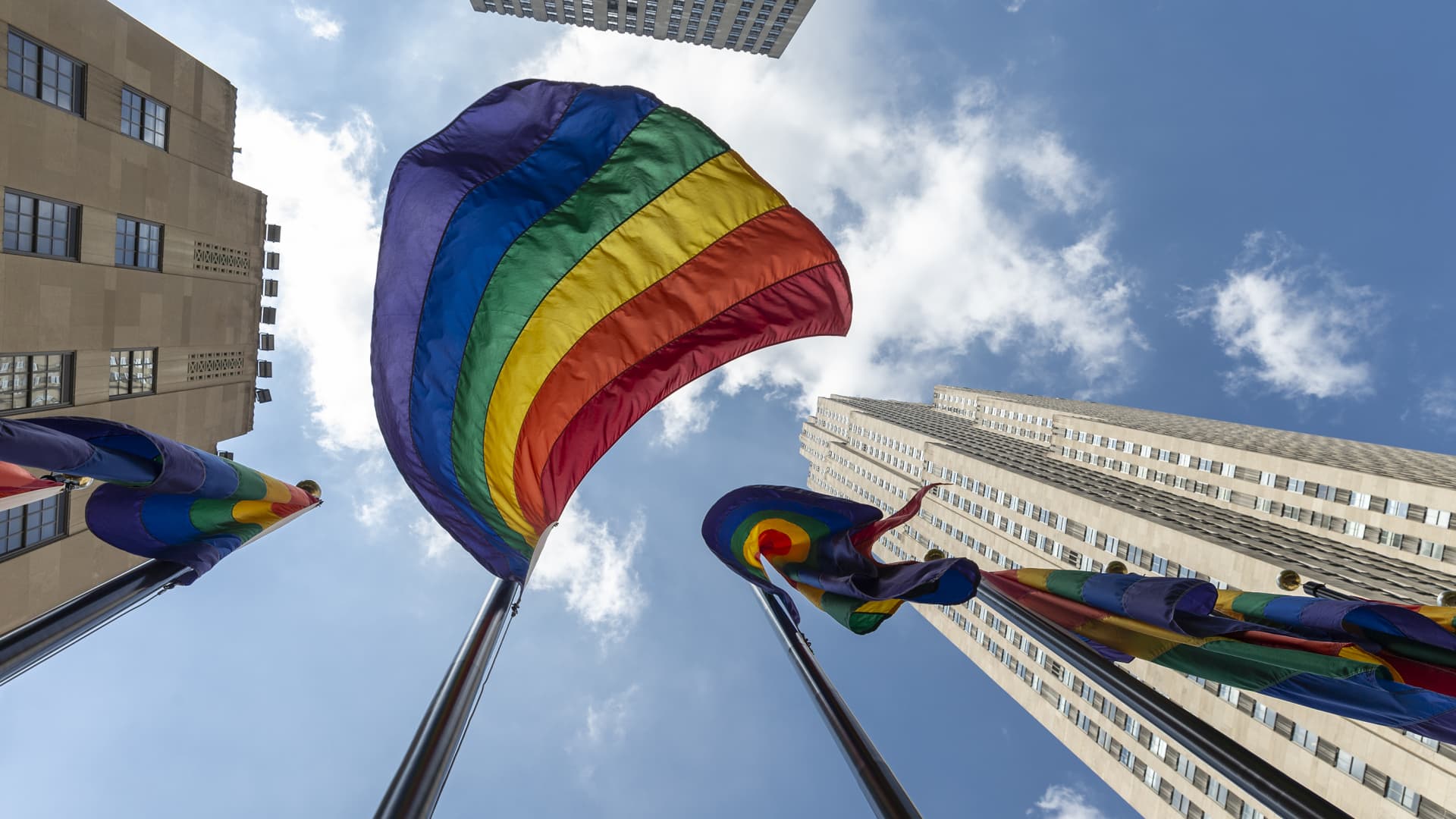
Rainbow flags celebrate Pride Month in New York.
Lev Radin | Pacific Press | LightRocket | Getty Images
Members of the LGBTQIA+ community are still struggling, in some instances, to access financial services that would help them manage their money.
Some 30% of LGBTQIA+ adults have experienced bias, discrimination or exclusion in the financial services sector, either from individuals or organizations, a survey from the National Endowment for Financial Education found. The online survey of more than 1,000 adults in the LGBTQ+ community took place from May 6 to May 17.
Of those who experienced such barriers to accessing financial services, many noted that age and orientation were the top reasons they felt led to the experience. In addition, transgender respondents face the most discrimination, the survey found.
More from Invest in You:
Student loan forgiveness could narrow racial wealth gap
Do this with 529 college savings plan if student debt’s forgiven
Here’s how to get the most money towards college
“As a member of the LGBTQIA+ community who has personally experienced many layers of bias within financial services, this issue hits close to home,” said Billy Hensley, president and CEO of the National Endowment for Financial Education, in an email.
“I think it’s easier to ignore the subjugation, prejudice, bias, phobias and ‘isms’ that happen within personal finance if we cater to the assumption that financial and social advancement rests solely on the individual’s decisions as measured only by financial outcomes,” Hensley said. “If we average everyone together, we ignore the authentic, unique and diverse lived experiences of all.”
He added that these experiences further hinder the wealth of a group that’s been historically marginalized in the U.S.
“While not specific to this data, we do know that among gender, people of color and those in the LGBTQIA+ community, there are barriers toward building wealth and income disparity that certainly factor into establishing a level playing field for financial well-being,” he said.
What can be done
In addition to feeling unwelcome in the financial services industry, nearly 40% of those surveyed said they were discouraged by how financial services were marketed or offered, meaning fee structures, applications or approval requirements kept them from seeking money help.
The report found that while roughly half of LGBTQIA+ respondents said the quality of their financial life is what they expected, about 39% said it’s worse than they anticipated. In addition, 60% are living paycheck to paycheck, according to the report.
This can be helpful data to financial services providers such as banks, insurance companies and more. In addition to providing inclusive environments for all, they can review these other barriers to entry.
“Representation is key,” said Hensley. “We need greater national awareness of just how often discrimination, bias and exclusion takes place among all populations.” He added that a greater understanding of the current landscape is attainable with better data to inform positive public policy and regulation.
There’s also a financial incentive for banks, insurance companies and other financial services firms to be more inclusive. Today, more Americans than ever before identify as LGBTQIA+ and the demographic represents one of the fastest-growing population segments, according to census data. In addition, the community has close to $1.4 trillion in spending power, according to The Pride Co-op, a LGBTQ-focused market research and intelligence agency.
“When you restrict the ability of anyone to participate in the economy fully and fairly, you prohibit them from living their best financial life,” said Hensley. “It also negatively impacts the economic health of the country.”
SIGN UP: Money 101 is an 8-week learning course to financial freedom, delivered weekly to your inbox. For the Spanish version Dinero 101, click here.
Disclosure: NBCUniversal and Comcast Ventures are investors in Acorns.






